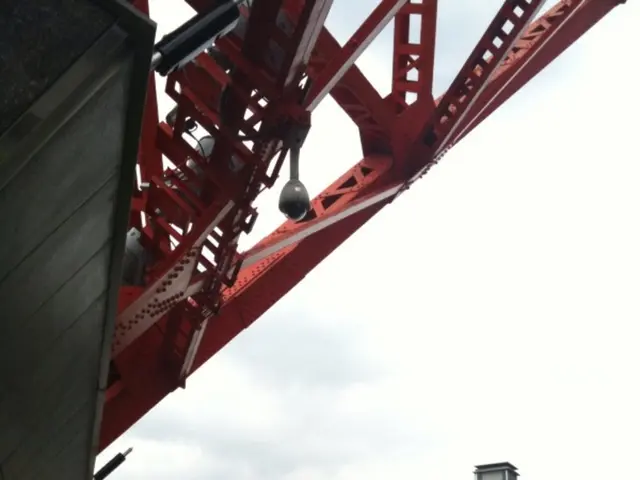Government plans to establish tech hubs abroad
In a bid to propel the nation forward, the Taiwanese government is backing the development of key technologies such as silicon photonics, quantum computing, and robotics. However, recent events have tested the island's power grid.
Last week, a fire at Taipower's Hsinta Power Plant in Kaohsiung and a malfunction at the Linkou Power Plant in New Taipei City cut 2.1 gigawatts of power generation. These incidents have raised concerns about the stability of Taiwan's power supply.
Despite these setbacks, Taipower, the state-owned power company, maintains that the daytime reserve margin should exceed 10 percent. During peak nighttime hours, the chairman of Taipower, Tseng Wen-sheng, expects to keep the reserve margin above 6 percent, even following these incidents.
To address these challenges, Taipower is planning for the future. A new generator at the Hsinta Power Plant is expected to resume operation next month, potentially stabilizing the power supply further.
Meanwhile, Taiwanese chipmakers are looking beyond their borders. In response to potential tariff outcomes, these companies have already invested in the US to ensure smoother operations.
The Taiwanese Ministry of Economic Affairs is also looking outward, aiming to strengthen industrial collaboration and innovation networks. The ministry has plans to establish technological parks in countries including Vietnam, Malaysia, and Thailand. This multi-year strategy, starting from 2024 through 2027, will see phased implementation of infrastructure and partnership development during this period.
The demand for artificial intelligence products and high-end servers, along with investments in related technologies by Taiwanese firms, is expected to benefit the Taiwanese industries. Amidst the power challenges, Taiwan's focus on technological advancements remains undeterred.
On a separate note, the US is currently investigating semiconductor tariff rates under the US Trade Expansion Act of 1962. The outcome of this investigation could have implications for Taiwanese industries that have already made significant investments in the US.
As Taiwan navigates these challenges, the nation's resilience and determination to push forward in the technology sector remain unwavering.
Read also:
- Elon Musk Acquires 26,400 Megawatt Gas Turbines for Powering His AI Project, Overlooks Necessary Permits for Operation!
- U Power's strategic collaborator UNEX EV has inked a Letter of Intent with Didi Mobility to deploy UOTTA(TM) battery-swapping electric vehicles in Mexico.
- Commercial-grade hydrogen enhancement systems manufacturing initiated by H2i Technology
- Toyota strikes a deal in Shanghai for a solely owned Lexus electric vehicle production plant.







